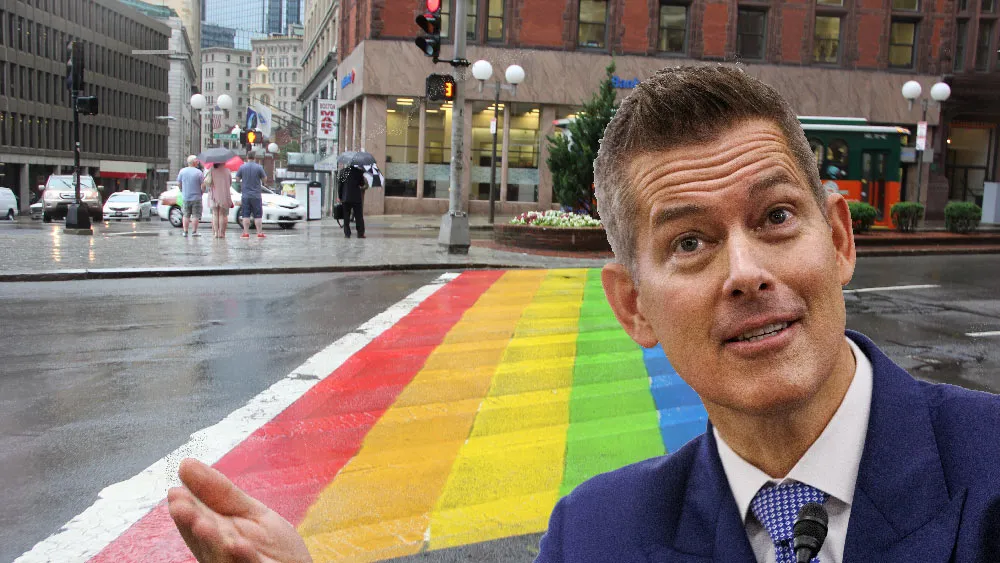September 27, 2017
September 27th is National Gay Men's HIV/AIDS Awareness Day
READ TIME: 7 MIN.
National Gay Men's HIV/AIDS Awareness Day is observed each year on September 27 to direct attention to the continued disproportionate impact of HIV and AIDS on gay and bisexual men in the United States.
Gay and bisexual men are more severely affected by HIV than any other group in the United States. From 2005 to 2014, HIV diagnoses decreased in the United States by 19% overall, but increased 6% among all gay and bisexual men, driven by increases among African American and Hispanic/Latino gay and bisexual men. Over the past 5 years (2010-2014), the increase in HIV diagnoses among all gay and bisexual men was less than 1%, although progress has been uneven among races/ethnicities.
Gay, bisexual, and other men who have sex with men made up an estimated 2% of the population but 55% of people living with HIV in the United States in 2013. If current diagnosis rates continue, 1 in 6 gay and bisexual men will be diagnosed with HIV in their lifetime, including 1 in 2 black/African American gay and bisexual men, 1 in 4 Hispanic/Latino gay and bisexual men, and 1 in 11 white gay and bisexual men. But these rates are not inevitable. We have more tools to prevent HIV than ever before.
Prevention
CDC's Start Talking. Stop HIV. campaign encourages open discussion between sex partners and friends about a range of HIV prevention strategies. Use campaign resources�to start talking about testing, your status, condoms, PrEP (Pre-Exposure Prophylaxis), and medicines that treat HIV.
Today, more tools than ever are available to prevent HIV. In addition to abstinence, limiting your number of sexual partners, never sharing needles, and using condoms the right way every time you have sex, you may be able to take advantage of newer medicines such as pre-exposure prophylaxis (PrEP) and post-exposure prophylaxis (PEP).
If you are living with HIV, there are many actions you can take to prevent passing it to others. The most important is taking medicines to treat HIV (called antiretroviral therapy, or ART) the right way, every day. They can keep you healthy for many years and greatly reduce your chance of transmitting HIV to your partners.
Use condoms the right way every time you have sex, take medicines to prevent or treat HIV if appropriate, choose less risky sexual behaviors, get tested for other sexually transmitted diseases (STDs), and limit your number of sex partners. The more of these actions you take, the safer you can be.
Specifically, you can:
o gay or bisexual man who has had anal sex without a condom or been diagnosed with an STD in the past 6 months;
o man who has sex with both men and women; or
o heterosexual man or woman who does not regularly use condoms during sex with partners of unknown HIV status who are at very high risk of HIV infection (for example, people who inject drugs or women who have bisexual male partners).
If you are at very high risk for HIV from sex or injecting drugs, taking HIV medicines daily, called pre-exposure prophylaxis (or PrEP), can greatly reduce your risk of HIV infection. You can combine additional strategies with PrEP to reduce your risk even further.
Federal guidelines recommend that PrEP be considered for people who are HIV-negative and at very high risk for HIV. This includes anyone who is in an ongoing sexual relationship with an HIV-positive partner. It also includes anyone who:
o gay or bisexual man who has had anal sex without a condom or been diagnosed with an STD in the past 6 months;
o man who has sex with both men and women; or
o heterosexual man or woman who does not regularly use condoms during sex with partners of unknown HIV status who are at substantial risk of HIV infection (for example, people who inject drugs or women who have bisexual male partners).
PrEP is also recommended for people who've injected drugs in the past 6 months and have shared needles or works or been in drug treatment in the past 6 months.
If you have a partner who is HIV-positive and are considering getting pregnant, talk to your doctor about PrEP. It may be an option to help protect you and your baby.
PrEP involves daily medication and regular visits to a health care provider.
Learn more about how to protect yourself, and get information tailored to meet your needs from CDC's HIV Risk Reduction Tool.
Get Tested
More than 600,000 gay and bisexual men are living with HIV in the United States -- 17% of them don't know it. CDC recommends that everyone between the ages of 13 and 64 get tested for HIV at least once as part of routine health care and that people with certain risk factors�get tested more often.
Find a testing location in your area:
Get Involved
Here are some sample posts:
o 9/27 is Nat'l Gay Men's HIV/AIDS Awareness Day. Show your support with #StartTalkingHIV's FB profile frame #NGMHAAD http://bit.ly/2vUMouy
o #StartTalkingHIV for #NGMHAAD. Encourage your partners and friends to join the conversation. http://bit.ly/2cPGpiC
o For #NGMHAAD, #StartTalkingHIV prevention: testing, condoms, PrEP, and medicines that treat HIV. gov/StartTalking
o Over 600,000 gay & bisexual men are living w/HIV in the US & 17% don't know it. For #NGMHAAD, #StartTalkingTesting http://bit.ly/2koXwOr
o Today is Nat'l Gay Men's HIV/AIDS Awareness Day. Learn about the best prevention options for you. gov/StartTalking #NGMHAAD #StartTalkingHIV
For more information, visit https://www.cdc.gov/hiv/library/awareness/ngmhaad-tycd.html or https://www.hiv.gov/events/awareness-days/gay-mens


